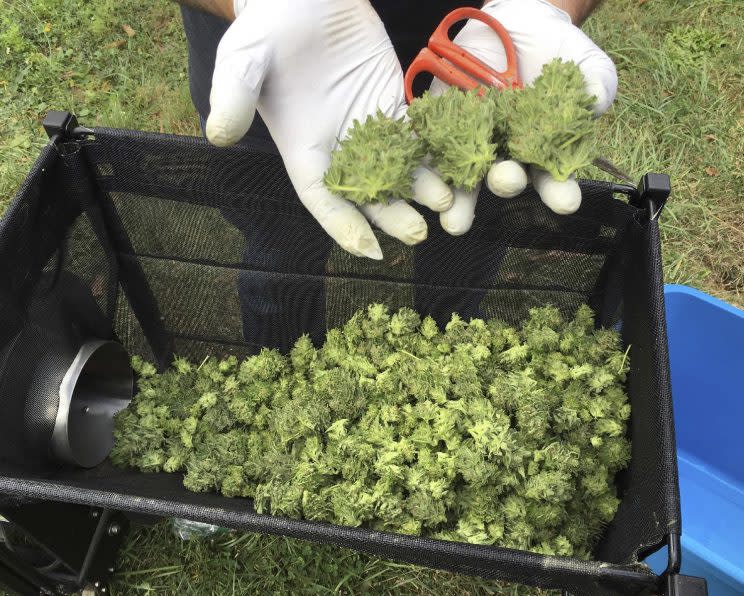U.S. support for legal pot reaches record high of 60%: Poll

The number of Americans who want legal weed keeps rising.
A Gallup poll released Wednesday showed that support for making marijuana legal in the United States has reached 60 percent — higher than it has ever been since Gallup first started asking this question in 1969, when only 12 percent of Americans supported legalization.
According to Gallup, support rose to 28 percent in the 1970s, slipped during the “Just Say No” campaign of the 1980s, stayed around 25 percent in the 1990s and rose to 31 percent at the turn of the century. A majority of Americans supported legalization for the first time in 2013, after Washington and Colorado legalized the drug for recreational use.
During the past decade, support for legalization has increased in most subgroups, but it is still much higher among people between ages 18 and 34 (77 percent), Democrats (67 percent) and independents (70 percent) than people 55 or older (45 percent) and Republicans (42 percent).
The plant is already legal, to a varying extent, in four states — Alaska, Colorado, Oregon and Washington — and the District of Columbia.
Frank Newport, editor in chief of Gallup.com, told Yahoo News that it’s noteworthy that current support for legalization among young people is higher than it has been in the past.
“Young people under 35 have shifted the most over the last 10 years or more. That’s important,” Newport said. “That’s where social change usually occurs. Older people tend to be set in their ways, and that seems to be happening here as well.”
He said his researchers don’t always know what drives fluctuating public opinion — whether it’s support for marriage equality or President Obama’s approval rating — but his team often discusses possible reasons.
“We often hypothesize that when Americans are aware of the fact that in Colorado and these other states you can actually smoke pot, it’s easier for them, when we call them up and ask this longstanding trend question, ‘Should it be made legal or not?’ people say, ‘Well, I guess so, more and more states are doing it.’”
But, Newport added, this could be a chicken-or-egg dilemma: Are attitudes changing because laws are changing? Or are laws changing because attitudes are changing?
The poll comes as voters in five states — Massachusetts, Nevada, Arizona, California and Maine — have initiatives on the ballot concerning the regulation and taxation of pot for recreational use by adults.
As Gallup pointed out, if these ballot measures pass, the portion of Americans living in states with legal marijuana could shoot up from 5 percent to as much as 25 percent.
Mason Tvert, the director of communications for the Marijuana Policy Project, a pot policy reform group, said a majority of the U.S. understands that marijuana is far less harmful than alcohol and wants the two substances handled similarly. At the federal level, marijuana remains a schedule I drug, the strictest level of classification reserved for substances with no accepted medical use.
“There’s a clear trend in the level of support for ending marijuana prohibition,” Tvert told Yahoo News. “We’re seeing support grow among every single age group, whether people are a freshman in college or a senior citizen, more and more of them agree, marijuana should be legal. It’s really just a result of people learning more about this substance and the failures of our current prohibition laws.”
Individual states, he continued, have taken it upon themselves to move forward as the federal government continues to tread water. In the past, he said, amendments proposing limited marijuana reform could reach Congress. But they would fail by a large margin.
“Now there’s very solid support for those types of measures but they’re not even coming up for votes because of the gridlock and the partisanship,” Tvert said.
Last week, the Pew Research Center released a similar national poll that found 57 percent of Americans said they think cannabis should be legal — up from 53 percent last year.
Related video:


